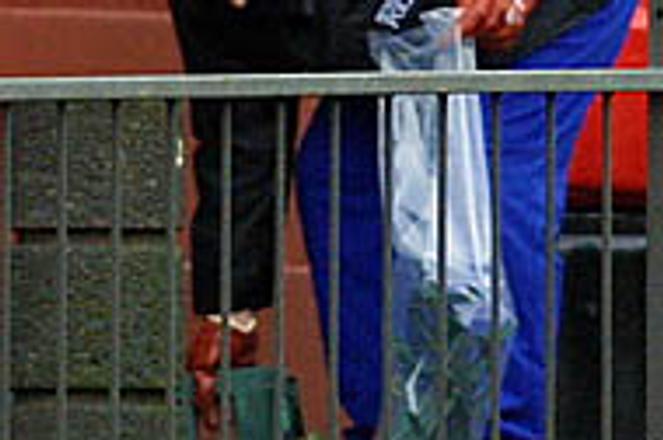The Real IRA is believed to have been behind many terrorist attacks in Ulster and mainland Britain. In the picture above, British police clean up after an attack believed to have been carried out by the group.photo: TASR
Britain is expected to request the extradition of three men suspected of links to the Real IRA, a terrorist splinter group from the IRA, after their arrest and detention in Slovakia July 6.
The three, two of whom have been named as Michael McDonald and Declan Rafferty, were arrested in the west Slovak town of Piešťany after what was believed to have been a joint surveillance operation involving anti-terrorist forces from Slovakia, Britain and other central and east European states. The third man has yet to be named.
The men, detained under warrants issued under Britain's Prevention of Terrorism Act, are thought to have been involved in plans to buy weapons for the terrorist organisation, probably from Croatia, and then ship them to the Irish Republic through central Europe. However, Slovak authorities have refused to comment on the case, other than to confirm that three men are being held.
Official sources say that the request for extradition will probably be made on July 13 or 16.
Slovakia's Justice Ministry said July 9 that it has 40 days in which to decide if it will grant the request for extradition.
The Real IRA appeared in late 1997 after splitting from the Provisional, or mainstream IRA - the armed wing of the Irish republican political party Sinn Fein. A cease-fire in the conflict in Northern Ireland had been called by the Provisional IRA. The group is opposed to the current peace process in Ulster, and has been held responsible for a number of bombings in Northern Ireland and mainland Britain, including one in the town of Omagh in 1998 which killed 29 people and injured more than 200.
The capture of the three men was welcomed by some politicians in Northern Ireland.
Unionist MP Jeffrey Donaldson said: "I first raised this issue in parliament a number of months ago and provided evidence to the government of an arms smuggling operation involving senior members of the Real IRA and gun-runners from the former Yugoslavia," he said.
"Hopefully, the [combined security forces'] action will prevent further arms being imported to Northern Ireland."
The arrest is the second incident involving the detention of people in central Europe with suspected links to Irish terrorist groups. In August last year, Croat police seized a shipment of arms including a rocket launcher allegedly destined for Dublin.
Weapons used by terrorist groups in Ireland, including the real IRA, have previously been traced to the Balkans region. Last September a warhead from an RPG18 rocket, believed to have been smuggled from the Balkans, was fired at the London headquarters of the top British Intelligence Service, MI6. British authorities said at the time that they believed the attack had been carried out by an Irish dissident terrorist group.
Since the fall of Communism in the region at the end of 1989, western intelligence services and independent military experts have said that central Europe, and especially the former Czechoslovakia as one of the largest weapons producers in the world when part of the Warsaw Pact, were a particular area of concern for illegal weapons trading and shipping. The sudden and sometimes disorganised closure of many arms factories and the low wages paid to those controlling legal arms shipments, making them susceptible to bribery, make it easier for illegal arms traders and runners to ship weapons to the West, they say.
- with press reports

